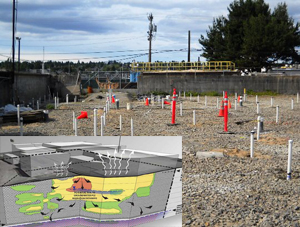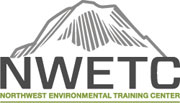
Attendees will receive a course manual containing workshop proceedings and reference material.
In this 2-day course, attendees will learn the basic principles of contaminant geohydrology, fate and transport, and groundwater remediation. This course will cover the scope of the groundwater contamination problem in the United States, the drivers that mandate addressing these problems, and the technical constraints and practical solutions to remediate these problems. Participants will be exposed to basic concepts of hydrogeology and contaminant transport in groundwater.
Participants will also learn the status of remedial technologies employed by remedial practitioners to cleanup groundwater contaminated with the most common inorganic, organic and persistent contaminants such as fuel hydrocarbons, metals, 1,4 dioxane, perchlorates and chlorinated hydrocarbons. Case studies and active engagement with the attendees will be used to reinforce the points presented in lecture. Understanding the topics covered will provide attendees with a current and better-informed perspective on the practice of groundwater investigation and remediation.
|
"[This course provides a] good overview of remedial technologies, including course studies." J. Mefford, December 2013 "Good short course for introduction. Very good technical knowledge of chemistry [and] geology modeling." A. Kar, December 2013 |
CEC's: 13 Technical CEC's
If you have any difficulties or questions regarding registration please call 425-270-3274 ext 100.
Please wait to receive a course confirmation email, roughly one month prior to the class, before making any travel arrangements.
This course is refresher training for scientists and engineers engaged in remedial planning and implementation and as a comprehensive overview of regulations, policies, and remediation practices for non-technical facility managers, municipal planners, real estate developers, and attorneys that employ environmental remediation professionals to support their respective projects and clients.
